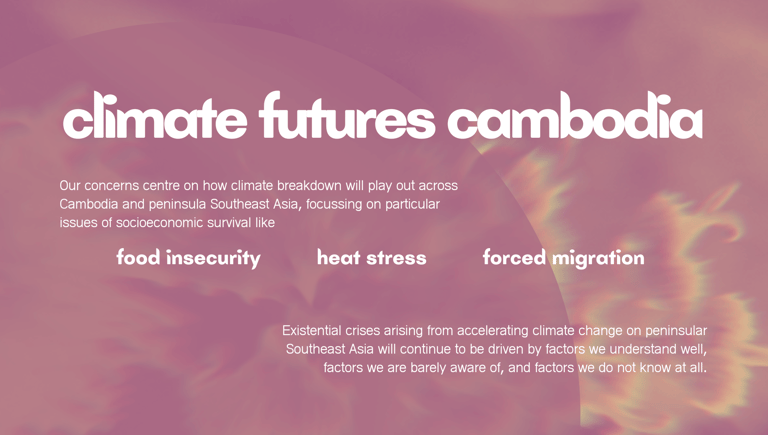
Samaki School
Community support centring upon a small school in rural Cambodia
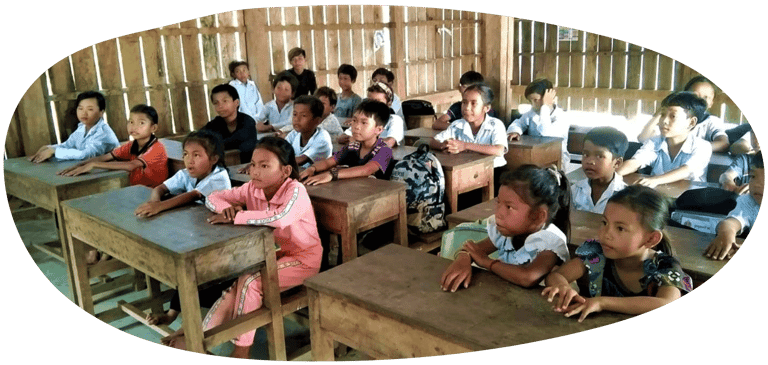

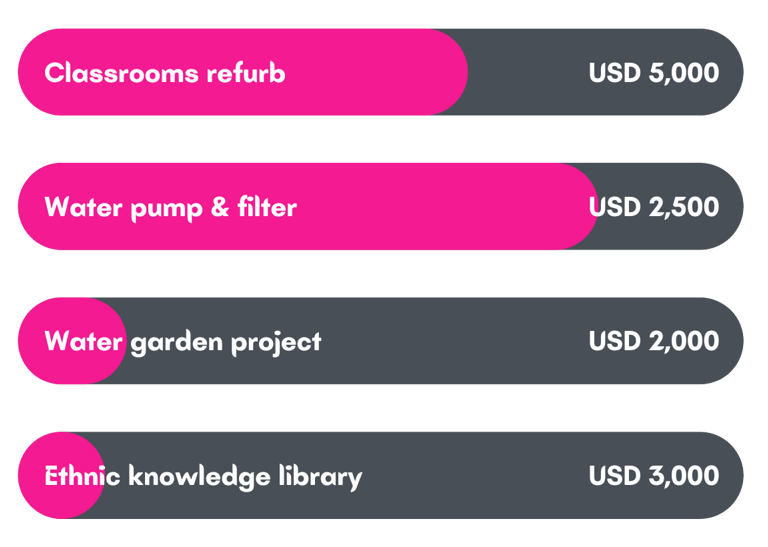

Climate Futures Cambodia is fundraising for the refurbishment and improvement of Samaki School in Fang Village, Ratanakiri, Cambodia.
The school premises is being developed to also be used to grow a grassroots co-op centred upon financial security and cultural preservation.
Samaki School currently accommodates 61 students, ages 6 to 12, of Khmer, Lao, Tumpuon, Kreung and Kachork ethnicities. Only receiving accreditation from Cambodia’s Ministry of Education in early 2024, the school has provided basic education for rural children for years, with meagre resources cobbled together by the local community, with some minor one-off contributions from NGOs. Samaki School is in great need of improvement.
June 2025 Project Update
Initial school building refurbishment is now completed. Plan International is now constructing a brick school building on site.
Fundraising continues for a library, furniture and school supplies, and for the water garden project.
Teachers and students work daily on the garden, as it continues to gain interest from parents and the broader community. The project has been commended by the provincial government as a model project that all other schools in the province should emulate.
We are purchasing and collecting books for the ethnic knowledges library for cultural preservation. Several garden harvests have been collected and consumed by the students and their families. Fertiliser demonstrations have been held at the school. The Water Garden Project is facilitating knowledge-sharing between ethnicities through student-led school projects.
The community of families attending and supporting the school stretch far beyond Fang Village, with students commuting from surrounding villages such as Kachon, Mong, and Phnom Kok.
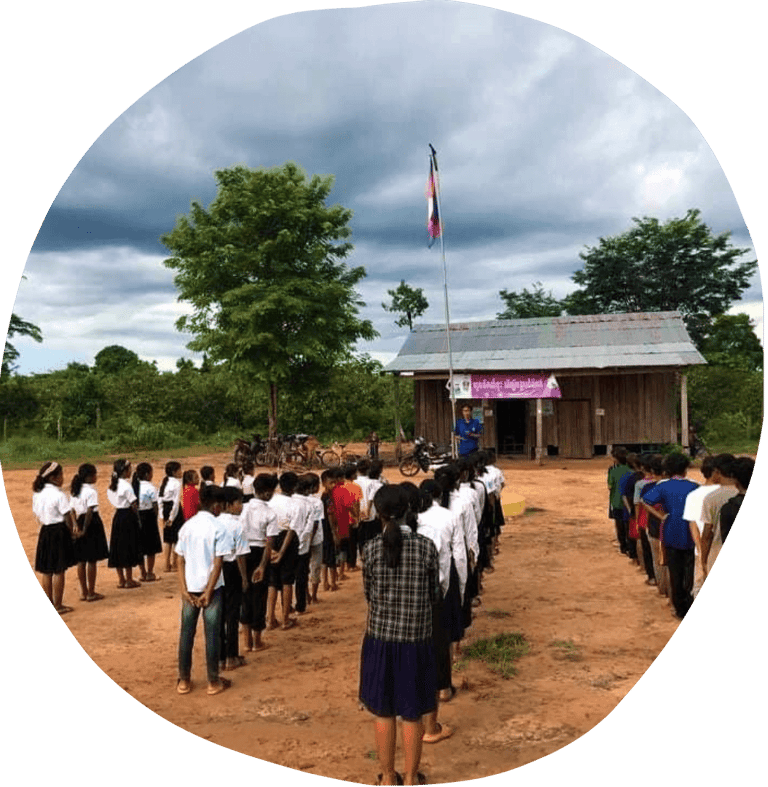

The local community comprises a majority of Lao people, who represent an ethnic minority in Cambodia, and other indigenous Cambodian ethnicities such as Tumpuon, Kachork and Prov and other ethnic minorities. The community is a relatively new one, located in a remote part of Ratanakiri. Families rely heavily on natural resources locally, receiving little economic support from governmental or non-governmental organisations active in the area.
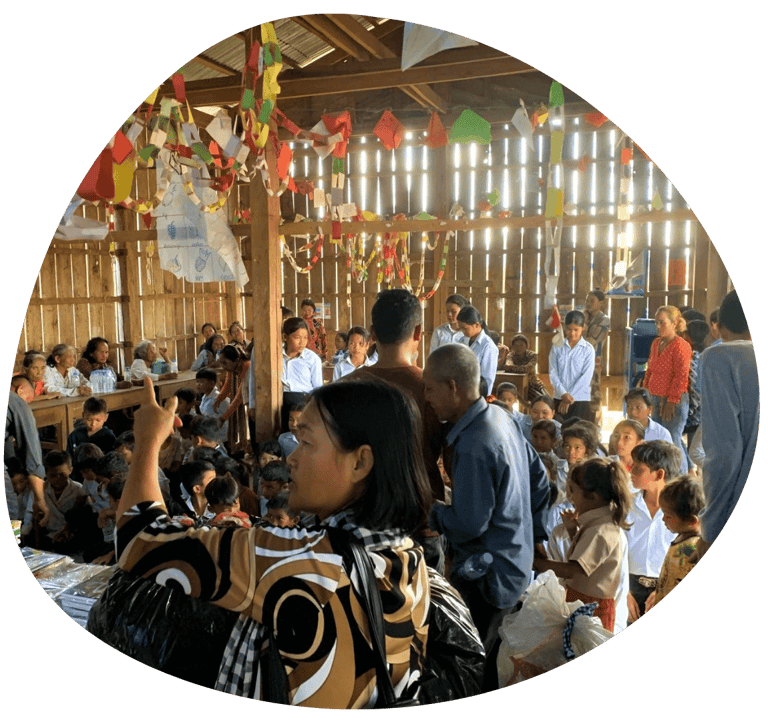

For over a millennium, Ratanakiri has been occupied by the highland indigenous Khmer Loeu people, who comprise of many indigenous groups. During the region's early history, its Khmer Loeu inhabitants were exploited as slaves by neighbouring empires. The slave trade economy ended during the French colonial era, but a harsh Khmerization campaign after Cambodia's independence again threatened Khmer Loeu cultures and traditions. The Khmer Rouge built its headquarters in the province in the 1960s, and bombing during the Vietnam War devastated the region. Today, rapid development in the province is altering indigenous life.
Despite Ratanakiri’s difficult histories, this local community continues to survive, and remains close to their traditionally forest-centric ways of life.
Climate futures in Indochina are dominated by food insecurity, heat stress and forced migration (more in this presentation). Climate Futures Cambodia is a private citizen’s initiative to engage in charitable work supporting indigenous cultural preservation as a line of defence against climate breakdown as it plays out in Cambodia and greater Southeast Asia.
Although Southeast Asia is the most climate vulnerable region in the world, the vast majority of Southeast Asians (population 655 million) are unaware of the accelerating effects of climate breakdown, and do not have provisions nor support to deal with it. Climate Futures Cambodia is seeking to try something different with the limited personal resources we have. Through this school refurbishment project, we will be able to engage with village leaders to integrate design considerations that seek to address food insecurity, heat stress, and forced migration.
Our pilot project supporting Samaki School helps us get started with seriously engaging Fang Village in climate resilient design through collaboration amongst different ethnic traditions. All funds raised go directly to the Samaki School’s design and construction activities.
Climate Futures Cambodia is a nascent, small-scale charity project led by Cambodians, with knowledge and financial support from friends in the Philippines who support indigenous and peasant rights. As a community-based project, it seeks to foster Right Relationship amongst Cambodians by preserving and nurturing indigenous cultures in preparation for ongoing accelerating climate breakdown.
We have an opportunity to engage community members in participatory co-design to preserve and support the practice of local ethnic and traditional architecture and construction, while future-planning with the school community around disaster preparedness for looming climate breakdown.
